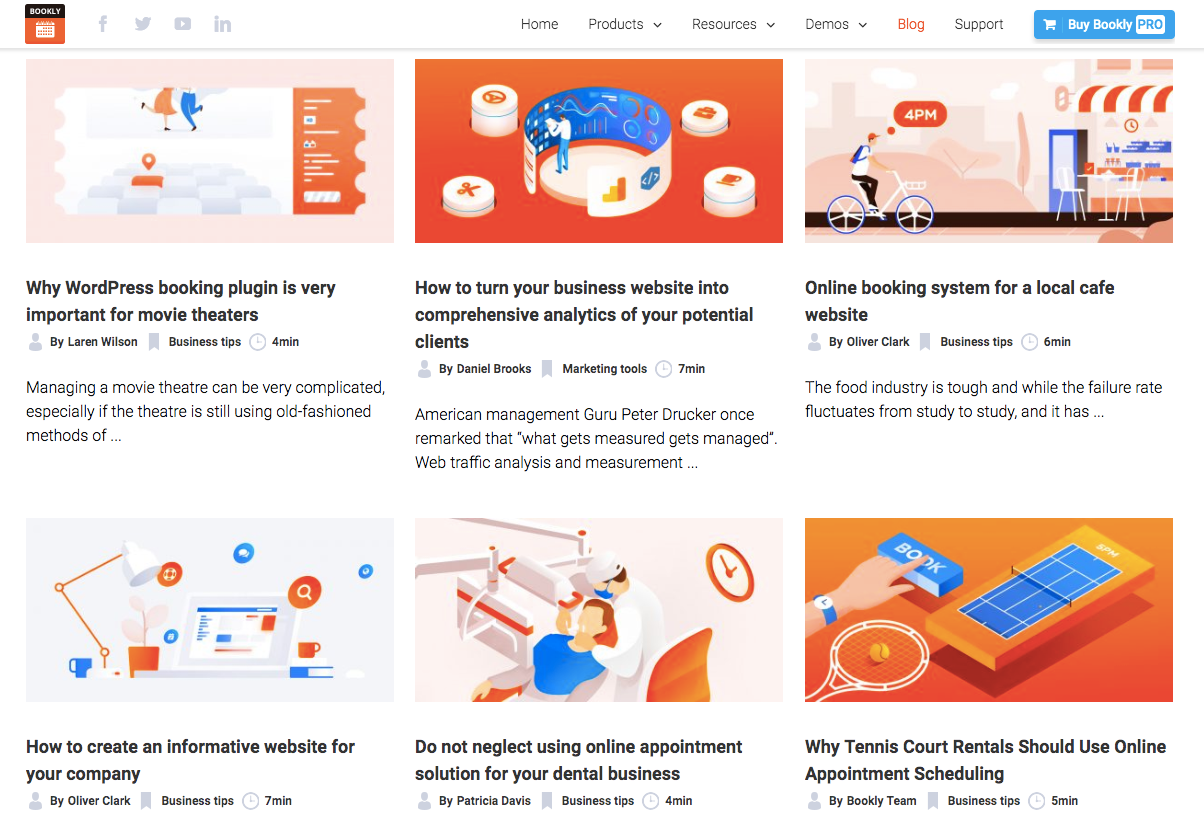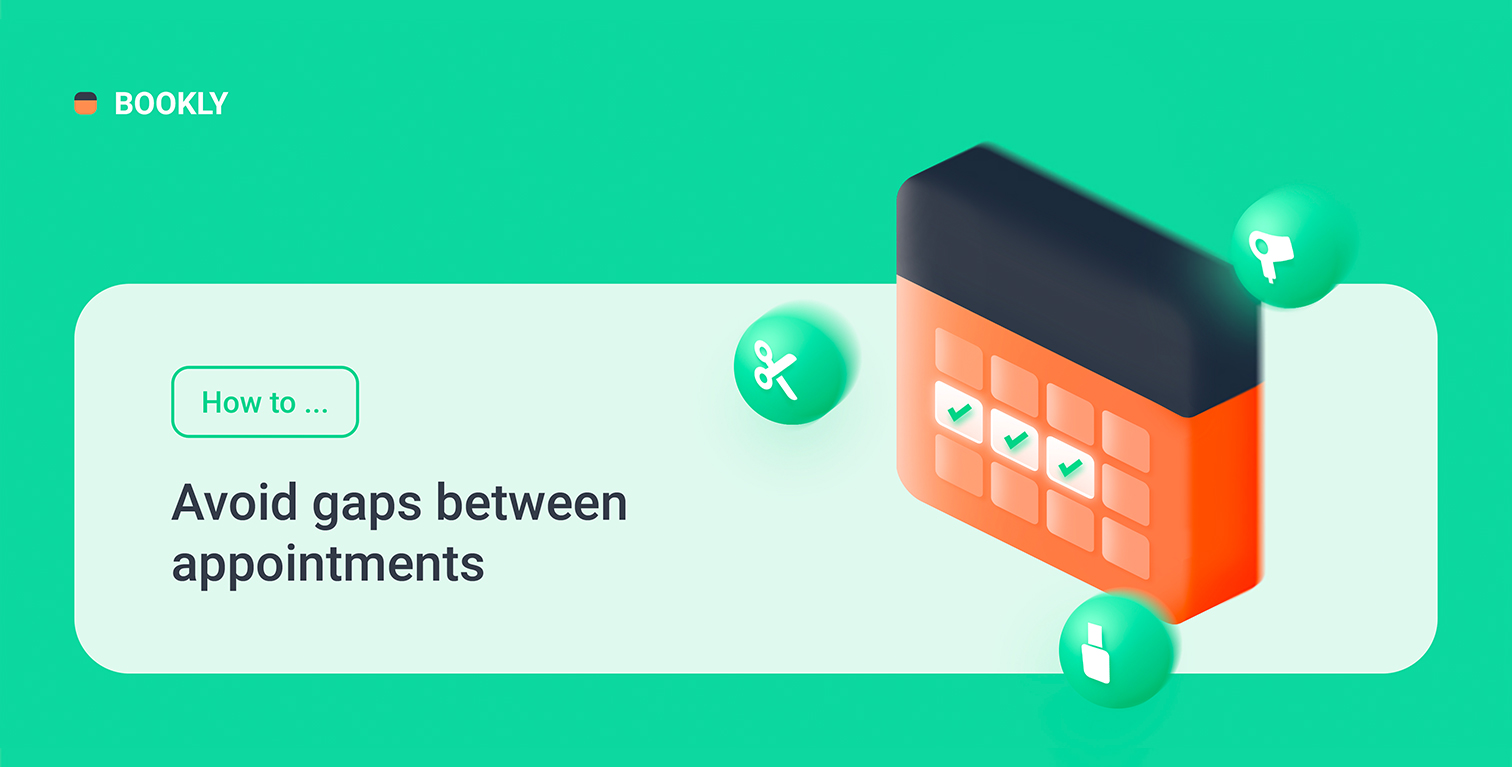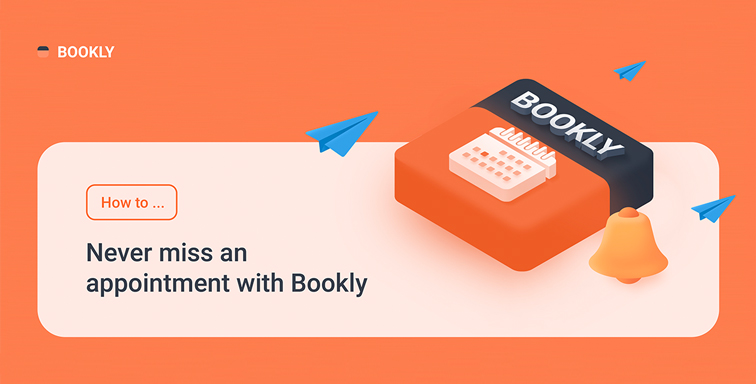Mostly, the websites that provide online scheduling services do not have a blog, though it goes without saying that setting up a blog can attract more traffic and the quality content is the must have marketing tool. Even if you have just implemented booking services online, there are many reasons why you should start the blog. Here are those to be considered.
Increasing traffic
If you are ready to invest time and money in increasing traffic to your website, blogging is one of the most effective methods. The point is that you, when blogging, increase the amount of content on the website and it can be wisely enriched with the target keywords. The quality content has a positive effect on the website indexing: more and more pages start ranking in search and traffic grows both through search engines and because of sharing interesting materials by users in the social media.
Expert positioning
Many online shopping websites and business card websites use content marketing to be proved as experts in the industry, ready to answer user questions, share advice, and help in problem solving. To this end, you need to work on the added value content and analyze how it can help your potential audience and what kind of problems it can solve.
For example, the website Bookly that sells the well-known WordPress plugin for online booking of appointments works on the content in a number of ways, e.g., sharing tips, reviewing both new and popular products, comparing products, life hacks, etc.
Audience Formation
A website blog can be used as a tool to attract and keep an audience, as well as to establish contact with clients. If you post engaging content regularly, some visitors come to your website again to read something interesting. Over time, those readers increase in number, and you start obtaining a regular audience. Make a video on how to use the products you sell, publish a few success stories of your customers – motivational stories are what people like!
Enabling posts for commenting allows your visitors to feel like a full member of the community. It is like with social media: just respond to comments, answer questions, and reply to greetings.
Brand loyalty
The bonus derived from the previous point – that is attracting the audience through publishing the content that meets its interests – contributes to the growth of customer loyalty. A blog plays an important role in building action chains to help you in converting one-time clients into regular ones. You may have a good product or service, but repeat sales can be low until you learn how to build brand loyalty. And that is what is essential for an online commerce business without any territorial limitations to attract customers.
Inbound marketing tools
The concept of inbound marketing was invented and brought into use by Brian Halligan, one of the creators of HubSpot, a popular web resource. Its essence can be reduced to three key directions of work:
- attracting visitors to the landing pages of the website
- converting them into customers or registered users
- analyzing the results
It is a website blog where users come from various sources – visitor posts or comments, search engines, social media, and e-mail subscriptions. A review of a popular product in the blog is perceived by users positively, in contrast to the direct advertising of the same product in a web resource catalog.
Viral effect
Provided that the content you publish is really interesting to your followers, as soon as your audience grows, the viral effect of published materials increases. Users love to share with friends the articles that, in their opinion, are interesting or, even better, help to solve problems. Just one viral publication can lead to your online store not only hundreds of new visitors but also many potential clients who will buy your products.
It is essential to understand that the benefits mentioned cannot be gained overnight. It can take longer, but investments will begin to pay off in the first few months. Every blog post contributes to organic traffic growth and, often, it might remain relevant for months and even years. And, you need to invest only at the stage of creating and publishing materials, while the effect can be constantly lasting.
How to Run a Blog?
A website blog can be used as an effective tool for conveying information about the benefits of your products and about yourself as a reliable and responsible seller anyone can trust. But be reasonable and not turn the resource into a fair of boasting and self-promotion, which will only repel clients.
If you do not have any experience in blogging and content marketing, or if you think your current strategy is not effective enough, use these tips:
Experiment with different kinds of content
These can be informational articles, reviews, news digests, interviews, reviews of various trends and exceptional events in the industry, and photo and video galleries. Analyze the user reaction and prioritize your work based on a user behavior.
Systematize your blogging
It is better to post fewer articles but regularly than to publish materials every day for one week, and not to write a single post note the next week. Followers do not like guessing – they want to know exactly when to expect a new batch of interesting content from you.
Be careful with advertising
Do not turn a blog into news-and-promo feed. Yes, it is an excellent platform to make an announcement or to draw attention to promotions, but too much enthusiasm for posting this type of content can only lead to the drop in user interest, a decrease in their enthusiasm, and an outflow of visitors.
Keep an eye on your competitors
Spot the leaders in your niche who are already have a blog, and look what they post. This can help you to make a list of ideas for publications and design your own content plan. It is also worth to get know which articles collect the greatest number of comments – and you will know what the audience interest in.
Analyze the statistics
This will help you to understand which of your materials aroused the most interest from users, which keywords attract the traffic to your website, and what is the level of cross-linking between the pages of your website. Usually, this work is done by a professional SEO-marketer. There are a few things that are worth analyzing: top posts that attracted the most traffic from search engines, bounce rate, number of comments, time spent by users on the website, number of pages viewed, landing and exit pages, and so on.
Thus, you will be able to identify the most popular and effective in terms of conversion pages on your website, improve them if possible and decide on the further work having in mind the data obtained.
What to write about?
Probably, this part of the work is one of the most difficult, because sooner or later the list of obvious topics ends, and you start spending your time in search of new ideas. To make creating content easier for you, we can show you a few areas for brainstorming:
- secrets and tricks relevant to your niche
- tips on using the products you sell
- how-to guides
- reviews and comparisons of popular products
- answering the questions customers can ask
- solving potential problems.









